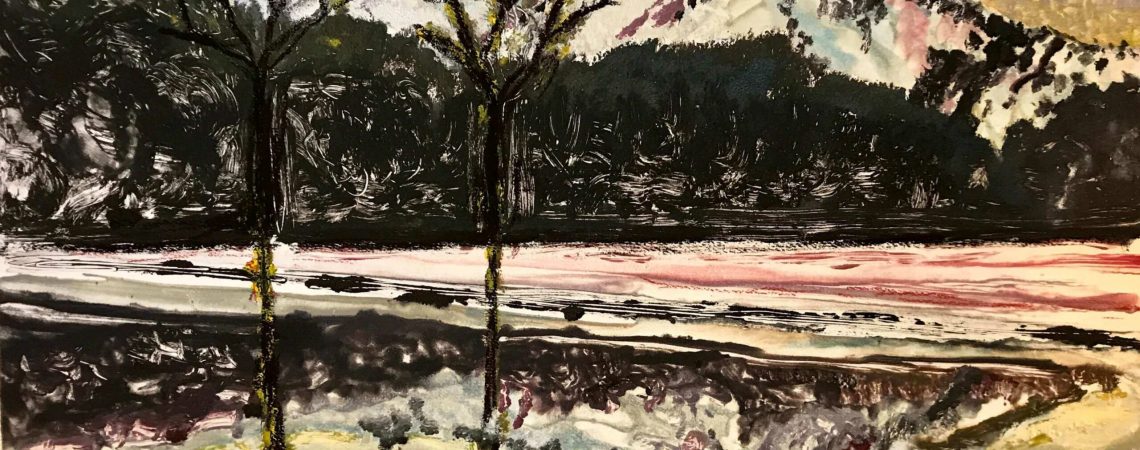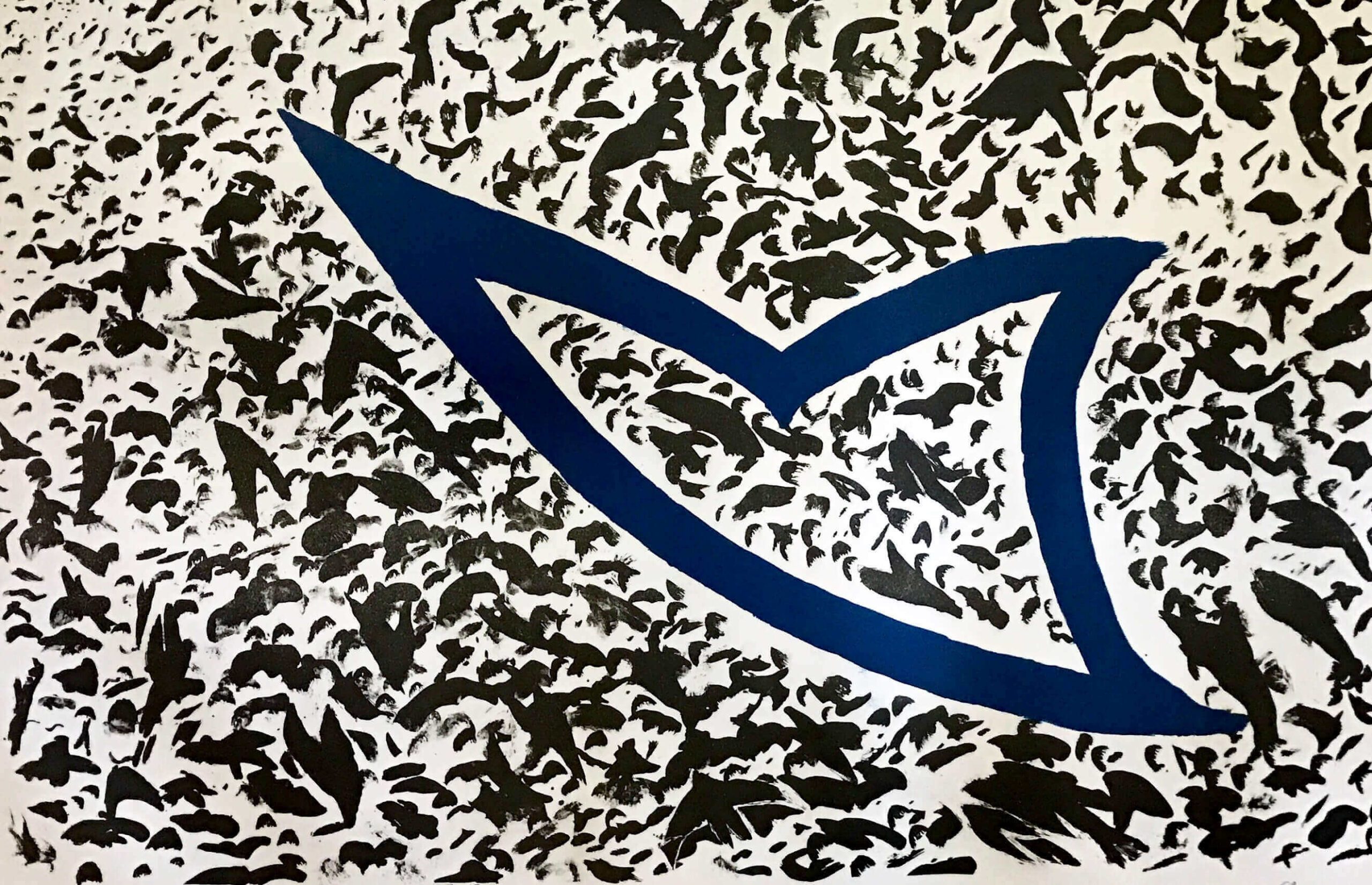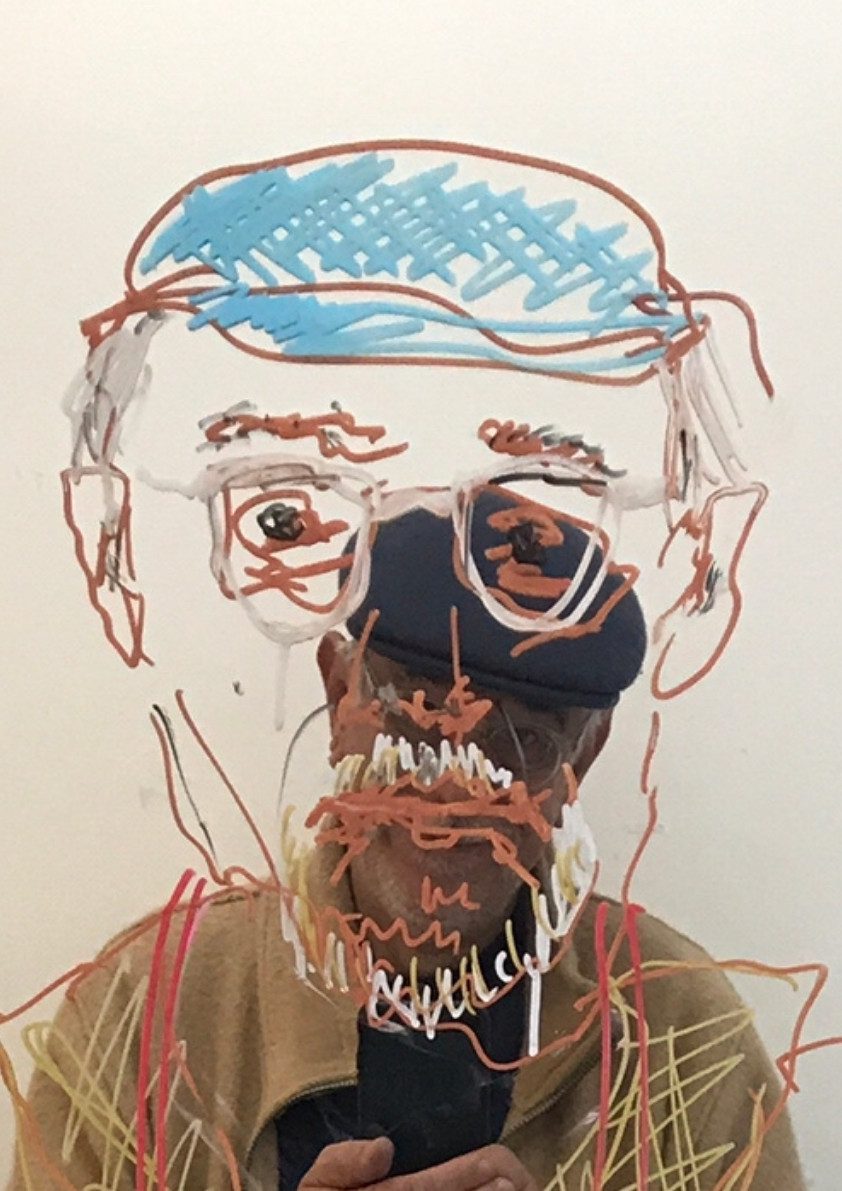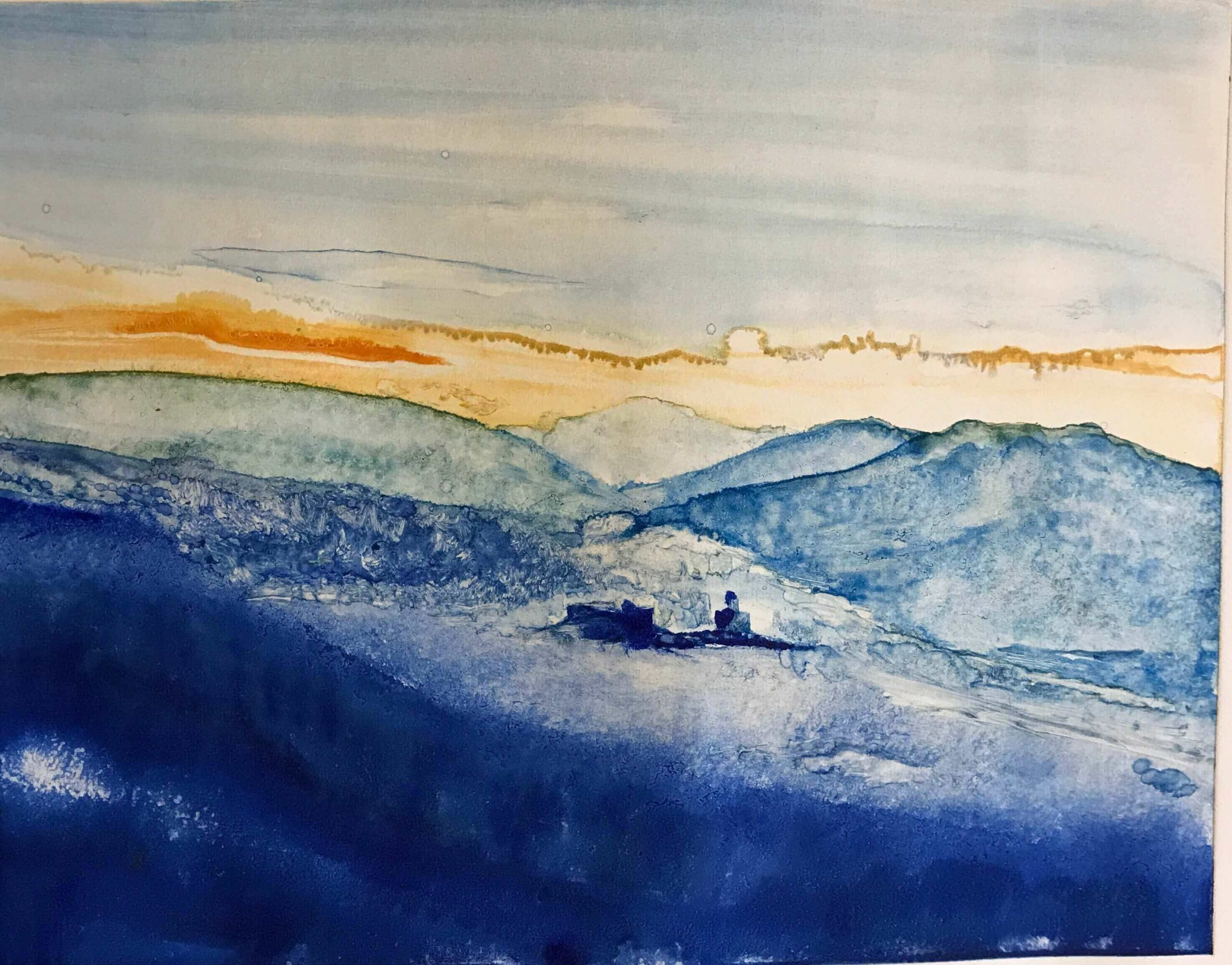“Relevos Oníricos” gives the title to the exhibition that the plastic artist Antonio Gerbase opens on November 6th, at the Paulo Capelari Art Gallery, in Porto Alegre. The individual brings together 21 pieces in the monotype technique and four woodcuts, in a total of 25 works of medium and large formats, whose predominant theme is the mountains. Paulo Borgato Olszewski is the curator of the show, which will remain on display until November 24th.
The current exhibition by Antônio Gerbase is the result of an artistic process that started about 10 years ago and that in the last five has intensified. Gerbase worked for many years as a doctor at the World Health Organization (WHO) in the area of AIDS and STDs. Outside Brazil since 1991, he has lived in Geneva since 1994, having developed a close connection with the Alps, so present in Switzerland and neighbouring France and Italy. He currently divides his time between international public health work, his chalet in the Alps near Geneva and in Porto Alegre. The trajectory of the global public health professional can be crossed with their production as an artist, insofar as the internal and external experiences of the citizen of the world offer imagery (and aesthetic) substance to the sensitivity of the engraver and painter. That’s why, in his various incursions around the world, as a current consultant for the WHO, the artist Gerbase does not dispense with his kit of pencils, brushes, paints, watercolours and gouaches.
Antônio Gerbase learned from keen observation, from intense and frequent visits to museums around the world, from his collecting spirit, from his interest in art history and from the dialogue with other artists in his frequent wanderings. He began with intense individual and solitary practice of designing and reinventing his surroundings, whether the nature that surrounds him or the works of three artists from the turn of the 19th to the 20th century, whom he admires: Hodler, Valoton and Munch. The objective of reaching the essential, expressiveness and irony is the difficult task that he proposes to develop. He tries, not without suffering, to project what he has inside himself and produce something relevant to the people around him. And for that your current interactions with your current mentors are critical.
With more time in Porto Alegre, since 2014, he received (and receives) regular technical training from a group of recognized plastic artists. Gustavo Freitas (woodcut), Paulo Chimendes (lithography) Maria Tomaselli and Paulo Borgato Olszewski (painting) and Marcelo Lunardi (metal engraving), with whom he developed the monotypes for this exhibition. The meeting place is, most of the time, the Museu do Trabalho, a special and stimulating place where he prints his production.
In the 25 pieces on display, with their dreamlike reliefs, colour intervenes at every moment, in a luminous way, revealing the many contrasts of the landscape and the artist’s gaze. “This mountain life, Antônio Gerbase masterfully captured in his watercolours, oils and woodcuts. He studied the geometry of the planes, their architecture, the colours of the mountains and his colours. Because the majesty of a mountain, its inexhaustible volume with all its folds and nuances of colour makes the soul vibrate”, says plastic artist Maria Tomaselli. Psychoanalyst Aldo Luiz Duarte also commented on the artist’s work: “Gerbase’s art reflects the mind more than the eye, which results in the multiplication of one work in many others, unique, depending on each observer. What more can you expect from an artist?”.
Sobre a monotipia
Monotype is a printing technique that consists of reproducing a design or color patch in a single proof. It is a plate on which an image is executed with the appropriate ink. This image is printed, making it the only copy, and it is impossible to obtain an identical copy again. In this way, the monotype is situated between the graphic areas and drawing (or painting).
According to Luise Weiss, “the monotype, therefore, constitutes a hybrid process, between painting, drawing and engraving. It comes close to the gesture of painting, the inkblot, or the trace, the line; at the same time, it has its own engraving characteristics, such as image inversion. Although the name itself clarifies, mono (single) and type (print), that is, that it is obtained from a single proof, in some cases there is the possibility of obtaining more than one copy, evidently increasingly tenuous, clearer. , remaining only a “ghost”/trace of the image”.
The proposed exhibition is the result of an artistic process that began about 10 years ago and has intensified in the last five years.
Antonio Gerbase worked for many years as a doctor at the World Health Organization (WHO) in the field of AIDS, living in Geneva since 1994, having developed a close connection with the mountains, so present in Switzerland. Self-taught, he has been following regular technical training in engraving since 2014 (monotypes, wood, metal and lithography).
In the works on display, with their dreamy reliefs, colour intervenes at every moment, in a luminous way, revealing the multiple contrasts of the landscape and the artist’s gaze. “This view of the mountains, Antonio Gerbase masterfully captured in his monotypes and engravings. He studied the geometry of the planes, their architecture, the colours of the mountains and his favourite colours. Because the majesty of a mountain, its inexhaustible volume with all its folds and shades of colour vibrates the soul”, says Austrian artist Maria Tomaselli in a recent exhibition.




